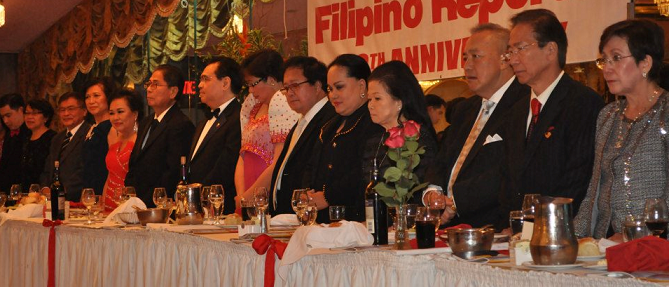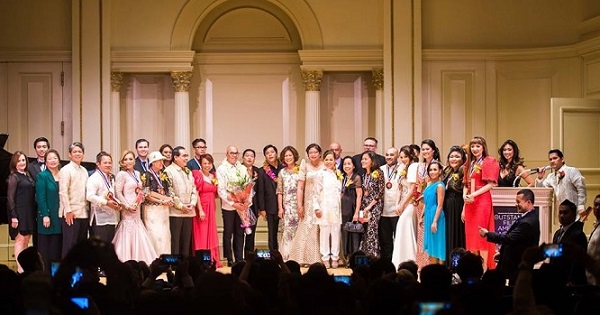Fixing immigration: Are we there yet?
By Ludy Astraquillo Ongkeko, Ph.D.
Television and other media brought information to the world that the many groups of foreign nationals who have become social action demonstrators in the United States will, in the near future see fruition in their efforts. That huge concern of the heterogeneous groups has now been maximized by legislators.
Solidarity has been displayed by several voices in Congress, not just those who have been identified as ‘warming up,’ and understanding the role of the minorities in the population, but from two-party sectors who asked that something should really be done for the millions who are called ‘illegals,’ yet, they deserve to tread on that path to good citizenship.
Something has been re-defined: the undocumented immigrant population seeking to stay in the U.S. does not come from the Hispanic immigrants alone, nor only from unskilled workers. Multitudes come from many nations and circumstances. Reportedly, and the studies have been reliable, there are educated people, a good number of them trained in highly-sought skills who should be on the path to citizenship.
“Over-staying” aliens whose expired visas indicate they have never been criminals and are just ‘waiting’ to be on the right track to be ‘legalized,’ come from such regions as Asia, Africa, the Middle East, the Caribbean and Europe; our own native land as well, and they can’t be forever ‘tago ng tago’ (TNT or always hiding).
Indeed, through naturalization, legions of citizens from abroad went through the requirements of the law, and their descendants aspire to be like them. Some say, “We are doing what we can to earn that gift which will lead us to American citizenship.” They do not welcome ‘amnesty.’ Those who resent amnesty claim there are so many who have received benefits from that mass ‘forgiveness,’ and they know many who deliberately broke the law, and should not be on the same path as they are, they want to be ‘on the road to good citizenship.’ And they emphasize it: ‘good citizenship.’
There are legions of naturalized American citizens who are proud to declare, “We earned our status.” Yes, they earned that citizenship all right. Numbers of Filipinos echo the same.
Numerous ‘new’ Americans realize no one has really expected a “one-session fix” from Congress.
Undoubtedly, immigration is a complex social and political problem.
Several efforts were made to come to a workable solution of the immigration dilemma but it was unfortunate that those same efforts ran aground. Now, it has been comforting to learn that efforts are being directed to arrive at a workable solution of the debate on immigration.. Foundations of a credible policy from Congress should be pushed through. Let the solution come through!
There is more than an urgent note that in order to solve the issues, Congress must simplify the legal, economic and social complexities presented by what population experts call a ‘polyglot’ that describes how almost all regions of the U.S. belong to that genre today.
The issue stares at all legislators: what can be done is to address an acceptable path to citizenship for qualified residents in line with their education and training, and who, in their wish to be recognized, must desire it.
Americans await our legislature to draft a plan that is broad enough to underwrite immigration, repatriation, guest worker agreements with all foreign nationals represented who belong to the category of ‘undocumented aliens.’
What should be impressed upon those who are willing to meet congressional requirements and the law: they should first of all, become law-abiding residents of the U.S. and when qualified, would apply for U.S. citizenship.
Should all requirements be met, would those who wish to remain in the U.S. legally, still wish to break the law?
No individual or group should be allowed to flout the law without appropriate consequences. If the law is followed, it would be a path to citizenship.
It would be a far more just, humane, and less costly operation than turning 13 million people or so into felons.
 GUERRERO YEE LLP. Trust our award-winning law firm with your immigration case.
GUERRERO YEE LLP. Trust our award-winning law firm with your immigration case.











